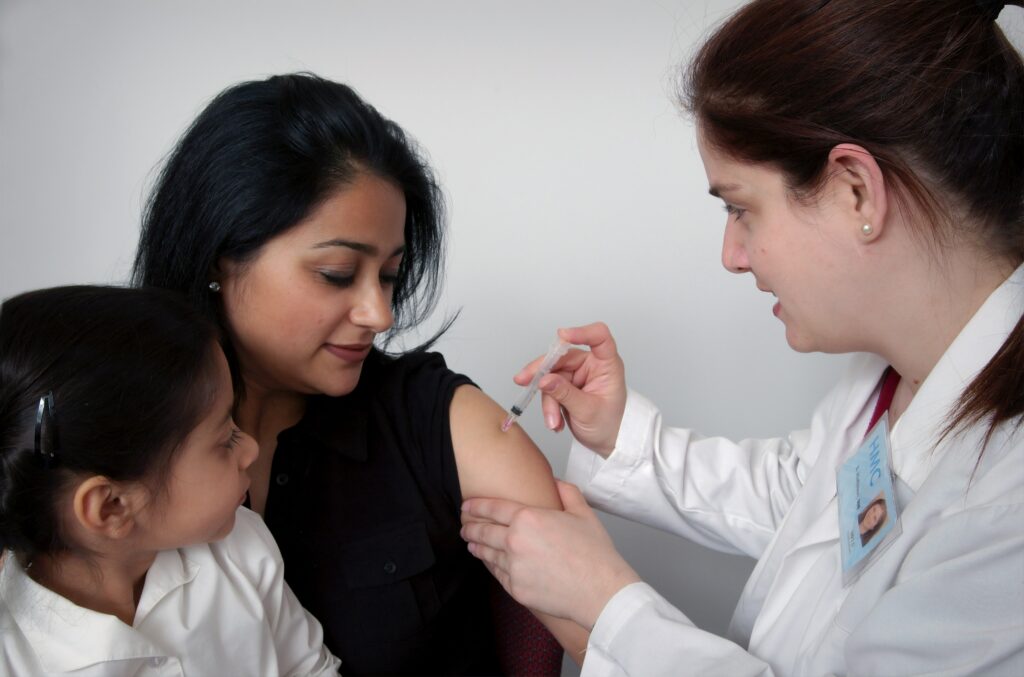Quick: Who’s your primary care physician? In the past, “the family doctor” was probably someone most people knew by name. Today, that’s not always the case. As the range of specialists continue to grow, is there still a role for the primary care physician?
What is primary care, and why is it important?
When discussing primary care, the conversation generally focuses on maintaining our well-being and addressing ailments that pop up occasionally. However, in many cases, a discomfort, injury, or pain we construe as a minor issue may be a clue to something more chronic and severe. Therefore, primary physicians are the first line of defense as we go about our lives, trying to remain physically fit and feeling good. In other words, primary care is the arena we enter in our desire to stay on track to a long healthy life.
The spearhead of primary care is our family physician or general practitioner (GP), as we often call them. Still, it extends to nurse practitioners and internists, both of which contribute significantly to this crucial sector of the healthcare system. We all recognize that a GP who knows you well is considerably more effective than a random one you may visit in an emergency room. In short, GPs’ involvement in their patient experiences (PX) over many years is an essential aspect of this conversation.
Indeed, there’s no set formula that defines optimal primary care treatment. Some people over sixty depend on consulting with a team of doctors who work cooperatively to cover all the vulnerable pain points. In other cases, physician’s assistants meet the patients’ needs. Much revolves around the accessible resources and timing (i.e., when they visit their medical facility or clinic).
What does primary care cover?
You probably relate to primary care based on certain patient calendar touchpoints. A good example is one’s “physical” – essentially an annual examination going over everything from an ECG (i.e., analyzing heart rhythms with an electrocardiogram) to routine probes for prostate cancer. Simultaneously, it involves taking blood and urine samples to scan for symptoms of diabetes, cholesterol overload, creatinine levels, and more. Aside from periodic checkups, our GP is a go-to resource whenever we contract the flu, a cold, strep throat, an allergy; tear a ligament, or seek a protective vaccine. We rely on their experience, training, and cutting-edge diagnostics to get to the bottom of whatever is ailing us.
Primary care relies on the theme of “enough about a lot”
While orthopedic surgeons, neurologists, and oncologists (examples of focused specialties) know a great deal about a small part of the anatomy, general physicians have to know quite a bit about every aspect of the body. Indeed, GPs must be acutely aware of when a patient’s situation takes them out of their depth. It’s the precise point for handing the baton to a colleague working 24/7 in the narrow realm of medicine relevant to the case.
So, in many ways, your GP is the quarterback of the profession, the one every specialist participant relies on for a chance to catch the ball (i.e., referrals). Even if we find ourselves in a specialist’s examination room, it inevitably was our family primary care physician who sent us there. An excellent example of this is radiology. Patients never arrive unannounced at a radiologist requesting an MRI or an X-ray for a perceived ailment. Indeed, outside of technicians in the imaging practice, patients seldom meet the diagnostic physician who sends the results directly to the primary care physician. No, the GPs connect the dots and make it their business to know which radiologist is best for specific ailments.
What gives primary care doctors the edge in upgrading your healthcare?
A primary care physician’s unique capabilities emerge from a vantage point of accessing patients’ entire medical history and building a trusted rapport with them over many years. For example, “heartburn” – the ailment the profession calls acid reflux – is a difficult one to treat consistently. It generally starts with a medication, which perhaps isn’t long-lasting or causes constipation. Unfortunately, “medication hopping” frequently only results in temporary symptom suppression versus getting to the crux of the problem. So, the danger of going to an Urgent Care facility is that patient history data is sketchy, thus bypassing a more thoughtful holistic approach. With all the data at their fingertips, family GPs may outline a dietary remedy alongside possible lifestyle changes as a constructive solution that works long-term.
Primary care doctors in the USA cannot qualify unless traversing four years of a bachelor’s degree (with pre-med courses) as the first step to medical school. From there, at least another four years are in the cards, including practical training as a resident intern following senior physicians on their rounds. Then, at the mature stages of their graduate education, the doctors decide where to branch out, looking at choices such as internal medicine, pediatrics, and family medicine. What follows is more intensive training in the selected primary care specialty. So, when you enter your doctor’s office, appreciate that the backdrop to any advice they provide connects to years of study and intellectual connection to the latest treatment and diagnostic techniques.
The more one visits primary family physicians, the more trust and loyalty build – essential ingredients in this crucial aspect of our lifestyles. We go to our doctors when we reach complicated touchpoints in our journey through life. Good examples are embarrassing habits (like belching or a constant twitch), emotional upsets when under stress, body shifts with age, early onset of fatigue, or changes in circumstances that call for different types of physical exertion (athletes experience this throughout their careers). In addition, we book an appointment the moment minor irritants escalate into something more severe, and even when we’re not sure what’s bothering us, we want a medically-trained person to overview things. Finally, knowing that family GPs can access our entire health history at the push of a button gives us confidence that their responses and recommendations are solid and well-thought-out.
Why is it vital to find a primary care doctor the family trusts?
One thing about our bodies and lifestyles that we can be one hundred percent certain about – both will change over the years, sometimes quite profoundly. Illness, for example, is a random predator, preying on everyone, the old and frail in particular. The difference between life and death, cure and suffering, often involves detecting an anatomical threat in its early stages. Ongoing routine testing of weight, heart, blood pressure, and blood samples all go into the data for results comparison, pinpointing abnormalities quickly. So, for example, let’s assume that:
- The final solution to a chronic illness depends on a hospital team of anesthetists and surgical specialists armed with laser devices and pinpoint imaging technology.
- I almost guarantee that the described sufferer’s GPs, if they are good at what they do, paved the way for the patient to get there in the first place.
An analogy that explains it well, if you will, relates to a company’s financial analysis:
- Did you know that a company balance sheet only provides an asset and liability view for a single day? Thus, if CFOs want to track company financial health trends, they must look at streams of single-day balance sheets going back for years alongside one another.
- Similarly, primary family care physicians have the advantage of seeing patients’ growth and decline through a journey with insight into extended PXs. As a result, they have a broad overview and earn the distinction of an analyst ideally positioned to call the shots regarding well-being and maintaining one’s health.
Primary care physicians still serve a vital role
The family GP is a pivotal service provider in our lives in the healthcare arena. Nobody can see changes in our bodily functions at every level like they can. Moreover, one of the most crucial benefits is that our GPs are easily accessible, interacting with patients when needed – no delays. Conversely, it’s not always so when specialists enter the equation, often resulting in lengthy waits. Fortunately, many personal doctors are closely connected to numerous medical networks and can significantly speed up the process whenever necessary. The bottom line is that dependable, knowledgeable GPs are worth their weight in gold.








